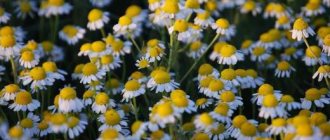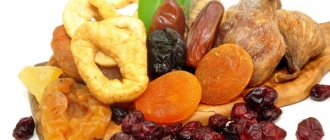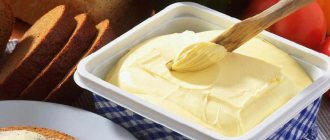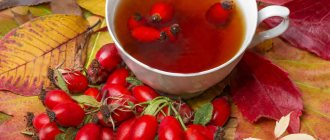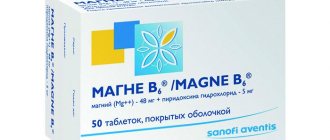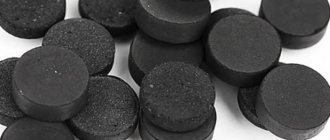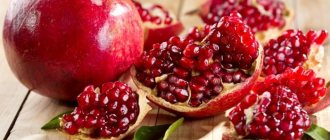Hello dear parents. Every mother knows that while breastfeeding, you need to drink up to two liters of liquid. It is not surprising that a third of the drinks are teas, another is compotes and juices, and the last is water. However, some young mothers doubt whether they can drink tea while breastfeeding or not. They also begin to be interested in the question, if possible, what type of drink to give preference to, how much to drink and how to brew it correctly. This article brings together the answers to all these questions.
Tea and lactation
Young mothers may have a very controversial issue about drinking tea while breastfeeding their baby. Some believe that such a drink can increase the volume of milk produced. Others consider this benefit not so significant and exclude tea from their diet due to the fact that it contains caffeine. There is a point here: tea does contain such an active substance as caffeine, but its content is several times lower than that of coffee.
In addition, this drink has a rich beneficial composition, which, if the recommendations are followed correctly and not abused, benefits both the health of the mother and the child. As for the opinion regarding increasing lactation, it has already been proven that it is wrong.
With proper use of any warm tea, the expansion of the ducts of the mammary glands is stimulated, due to which the flow of milk accelerates and better enters the baby’s body during the act of sucking. Don’t forget about the invigorating effect of tea, which is important when sleepless nights appear in your life.
Based on this, it becomes clear that mother can drink tea in limited quantities, but she needs to choose it correctly, brew it and drink it. Then you will not only not harm the body, but will also benefit it.
Useful herbs for a nursing mother
- Ginger;
- chamomile;
- rosehip (contains vitamin C);
- Ivan tea (fireweed);
- thyme;
- fennel.
How does tea interact with mother's breast milk?
Natural tea has a very good effect on breast milk. Especially for breastfeeding women who have periods of reduced breast milk production or for additional amounts during night feeding.
Herbs you can drink while breastfeeding
- Yellow fenugreek tea (will lower blood sugar levels),
- Blessed thistle tea ( can be drunk in small quantities),
- Tea with raspberry, currant and nettle leaves,
- Hop flowers,
- I will milk thistle,
- Lucerne.
Melissa while breastfeeding
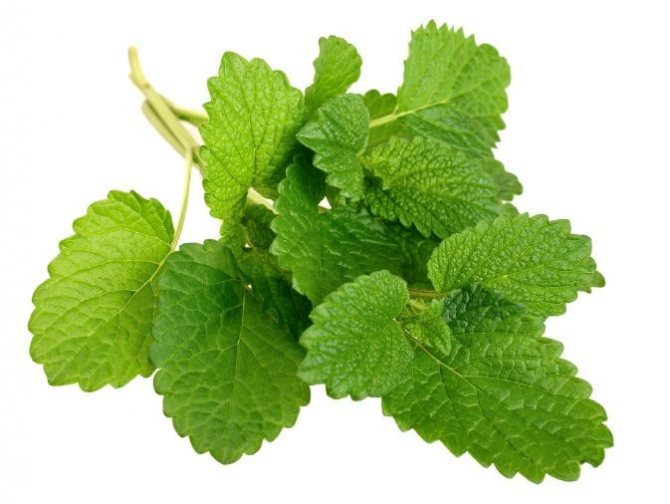
Melissa during breastfeeding increases lactation in a nursing woman. The many vitamins contained in lemon balm will strengthen the immunity of mothers and newborns.
Method for preparing a drink with lemon balm during breastfeeding
One spoon of dry lemon balm leaves per 200 ml of boiling water at a temperature of 90 degrees. Pour boiling water over the lemon balm and cover the infusion for 10 minutes. You need to drink lemon balm tea during breastfeeding, one or two cups a day. When breastfeeding, fresh lemon balm can be added to black or green tea, 2-3 leaves per cup.
Linden tea during breastfeeding
During breastfeeding, it is recommended to drink linden tea to prevent and treat colds. Also, drinking a glass of warm linden tea has an excellent effect on increasing lactation. In order to increase the amount of breast milk, you should drink linden during breastfeeding in a warm form.
Method of preparation: Pour boiling water over linden flowers and let steep for about 25 minutes. Since the infusion has a sweetish taste, you do not need to add sugar. You need to drink linden while breastfeeding 3-4 times a week. Linden tea is effective in treating colic in infants. The drink improves digestion, alleviates abdominal pain and has a beneficial effect on the newborn’s body.
In folk medicine, linden is used as a sedative for insomnia. Therefore, if the baby does not sleep well or is simply restless, then the nursing mother should give preference to linden tea.
A sugar substitute, fructose, should be added to any tea.
Linden is used as:
- diaphoretic;
- expectorant;
- antipyretic;
During illness, you can drink two to three cups of linden tea per day.
It is useful to drink linden for those nursing mothers whose newborn is allergic. You should start drinking the drink with a few sips in order to check the body’s reaction. If the baby does not show allergic reactions to tea, then increase the dose. The baby will receive all the beneficial substances through the mother's breast milk.
- When does the first period begin while breastfeeding (more than 100 reviews from mothers).
- How to lose weight after childbirth during guards.
- What vitamins are needed for a nursing woman?
- Mother's nutrition during breastfeeding.
- First feeding of an infant.
Ready-made teas that stimulate lactation
At a pharmacy or store, you can purchase specially created teas that stimulate lactation. However, you need to know that there are both pros and cons when using such a product.
The most valuable quality of such drinks is considered to be an increase in the volume of milk produced, although you will find women who will say that it does not have such an effect, but simply, like all warm drinks, expands the ducts of the mammary glands, thereby accelerating the outflow of milk. The downside is that such teas contain all kinds of stabilizers, preservatives, and may include flavorings. In addition, such tea is usually granulated, which means that it has been subjected to repeated chemical and thermal treatments. Consequently, it could lose all its valuable properties.
So the choice is yours. Is it worth giving preference to such a drink, or is it still better to just drink a sufficient amount of warm drink.
How to drink the drink while breastfeeding: with milk or lemon
A slice of lemon will enhance the tonic properties and taste of the tea drink. But sweet tea with milk can cause problems when breastfeeding, since refined sugar causes fermentation and can disrupt the baby’s digestive functions.
Drinking tea with milk is also undesirable, since it is a fairly strong allergen. But its ability to stimulate lactation has not received scientific confirmation.
But it has been precisely established that any liquid drunk half an hour before feeding will stimulate the flow of breast milk.
There is evidence that when combined with milk, tea facilitates the absorption of the latter. It is also known that “milk” tea loses some of its beneficial properties.
Drink tea correctly
It is very important to know how to choose and prepare tea correctly. Therefore, I offer you the following recommendations:
- Use loose leaf drinks rather than bagged ones. As a rule, such “bags” contain low-quality varieties of tea.
- Avoid drinks with added flavors, flavorings (this is unnecessary chemicals), as well as pieces of dried fruit (they can act as a separate allergen).
- If you drink herbal drinks, it is better to collect the components yourself or buy their mixtures at the pharmacy. When buying on the market, you cannot be absolutely sure that these plants did not grow in places where gases or other chemical emissions accumulate.
- There is no need to add sugar to tea; it is better to replace it with products containing fructose, such as honey. But this is provided that it does not cause allergies in the baby.
- Drink only a warm drink. Hot and cold will harm the digestion process, and thus valuable substances will be less absorbed by the body.
- Use only freshly brewed product.
Now you know that tea is allowed to be drunk during the postpartum period, when a woman is breastfeeding her baby. The main thing is not to overuse the drink and choose exactly the type that is ideal for both mother and little one. If a woman decides to introduce tea into her diet, she should study in detail what valuable properties the drink she has chosen has, and how it can harm. It is also important to know and follow the recommendations for its use. Of course, teas will not affect the increase in lactation volume, but they will help increase the rate of milk secretion and make it easier for the baby to reach. And thanks to its valuable properties, it will strengthen your body and enrich it with valuable substances. The main thing is that the baby does not develop allergies.
Herbal teas for breastfeeding
Herbal infusions, selected independently, can cause harm. It is better to choose tea from those approved by specialists, which are sold in pharmacies. What kind of tea can a nursing mother drink?
Tea with lemon balm. This is a hypoallergenic herb that will not cause allergies in the baby. But this tea helps fight colds and stabilizes the functioning of the nervous system.
Chamomile tea. Chamomile is a beneficial plant, but often causes allergies. Can only be taken after consultation with a specialist.
Blooming Sally. Fireweed tea is useful for lactation. It improves blood circulation, helps restore hormonal levels, and overcome anemia.
Tea with oregano. Useful for insufficient lactation. It has antiviral and antibacterial effects and calms the nerves. Tea is safe for babies, since oregano rarely causes allergies.
Tea with linden. It helps fight infection, calms the nervous system, reduces stress, and helps relieve colic.
Anise tea. Recommended for decreased lactation, stress, and intestinal colic.
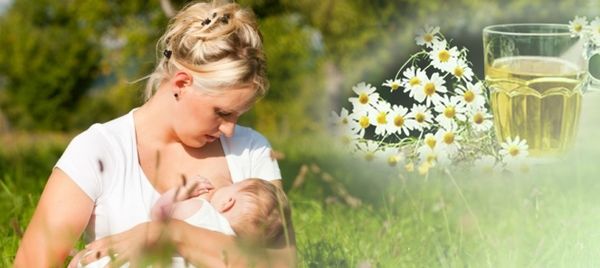
Benefits of milk tea during breastfeeding
When asked about the benefits of this drink during breastfeeding, most women will answer that it helps increase the amount of breast milk and achieve stable lactation. But is this really so?
If you simply drink tea with milk during the day, then this action is unlikely to help increase the amount of milk in your mother. But if you drink a mug of aromatic warm drink 5-10 minutes before feeding your baby, this will cause an intense rush, and there will be noticeably more milk.
Important: All modern research in the field of breastfeeding shows that lactation can only be increased by more frequent feeding of the baby to the breast. All other methods have a slight effect on the amount of milk, have a short-term effect or do not help at all.
In addition to causing hot flashes before feeding, milk tea can be useful for nursing mothers for a number of reasons:
- Milk is a source of calcium, which is essential for both women and babies. This microelement is involved in strengthening the skeletal system, hair, nails, and makes the skin and muscles more elastic.
- The tea itself is useful because it has a slight tonic effect; it contains antioxidants that fight aging and rejuvenate the body.
- A good cup of tea can relieve minor vasospasm, improve blood supply to organs and tissues, and also promote brain activity.
- A high-quality leaf drink can significantly improve digestion and help with intestinal disorders.
- Among other things, milk tea has a pleasant, delicate taste that many mothers like. Drinking this drink brings pleasure.
The beneficial properties of tea can be listed for a long time, but it loses some of them if it is combined with milk. For example, the effect of antioxidants is greatly weakened.
On the other hand, women who have given birth to a child often suffer from constipation, and tea only aggravates the situation, since it contains tannins. In this case, the milk balances the effect of the drink on the intestines, and the situation with constipation does not worsen, and in some cases the problem goes away altogether.
Also, the combination of tea and milk provides a good diuretic effect. This is relevant for mothers suffering from edema, an ailment that is also a common complication after childbirth.
Often a cup of hot tea for a woman is a special ritual, a symbol of calm and homeliness, which promotes psychological comfort. Therefore, you shouldn’t deny yourself this little joy even during GW. It is only important to choose and prepare the drink correctly.
Herbal medicine during lactation
For every young mother, the issue of treating a particular disease during lactation arises very acutely. After all, it is not for nothing that many medications are not recommended for use during breastfeeding: they have various side effects that are transmitted through mother’s milk and negatively affect the health of the child. To avoid the side effects of synthetic drugs, women most often resort to traditional medicine , using home recipes using foods and medicinal herbs .
But even here it should be noted that not all recipes of traditional medicine and herbal medicine are so harmless. Both food products and medicinal herbs can negatively affect the quality of milk, make it bitter (wormwood) or smell unpleasant (garlic), provoke an allergy in the child (citrus fruits, black elderberry) or intestinal upset (laxative herbs). Therefore, before using one or another method of traditional medicine during the lactation period, you should seek advice from a doctor or herbalist.
Most often, women have to deal with cold-type diseases (including viral diseases), which occur against the background of postpartum decreased immunity. This includes chronic tonsillitis, purulent tonsillitis, exacerbation of sinusitis, bronchitis, as well as “attacks” of herpes.
Using this or that recipe as a means of treating a disease, we expect to receive immunostimulating, antiviral, antimicrobial, anti-inflammatory, and antipyretic effects. From time to time, antispasmodics may also be required: for headaches or periodic pain in women. We want to get well ourselves as quickly as possible, without having time to infect the child with an infection, avoid the side effects of medications and at the same time maintain lactation.
So, what traditional traditional medicine , products and medicinal herbs can be safely used during breastfeeding, and which ones should be excluded at this time?
Lemon . It is lemon that we always put in tea for any cold, so that the vitamin C it contains will help to quickly activate the immune system and cope with the infection. Nursing mothers can use this familiar method if the child is not prone to allergies and diathesis. Otherwise, lemon should be replaced with currant berries (can be frozen), put them in hot tea or make fruit drinks, infusions, adding hypoallergenic honey (discussed below) or sugar. It has been proven that currants are far ahead of lemons in terms of vitamin C content. currant leaves for daily tea . Both fruits and leaves of currant of any variety (especially black) improve the quality of milk and are safe for the child.
Honey . It is also considered an allergenic product, so when treating colds during the lactation period you should not get carried away with it. The risk of allergic reactions in a baby to polyfloral honey varieties (for example, “Raznotravie”) is especially high. honey from white acacia flowers during lactation , which is collected in the apiaries of the Caucasian foothills.
Raspberry jam or raspberries , ground with sugar as a diaphoretic and antipyretic, are, of course, good and harmless, but if the child is prone to allergies, eating raspberries can give rise to the development of a strong reaction. It is best to replace raspberry fruits with raspberry leaves and linden flowers in the form of infusion or tea (weak concentration: 1 tablespoon of herbs per 0.5 liter of boiling water is quite enough). If you want to get a diaphoretic and antipyretic effect, it is better to drink this tea at night.
Echinacea purpurea is an ideal remedy for urgently boosting immunity during periods of viral and infectious diseases. It can and should be treated during lactation for any symptoms of colds and flu: brew 1 teaspoon of chopped echinacea herb with 200 ml of boiling water, boil for 2-3 minutes, leave for 20 minutes and drink per day, divided into 3-4 doses.
Teas and herbal mixtures.
You should immediately exclude all poisonous plants (mistletoe, celandine, Japanese sophora), as well as strong bitterness (wormwood, tansy).
It is necessary to use very selectively for oral administration herbs containing plant hormones in their chemical composition, being at first glance harmless and without causing any harm to the health of the child through mother's milk, they can act directly on hormonal processes in the mother's body and cause a decrease in the production of the required amount milk _ Such herbs include sage, calamus, elecampane, peppermint, common hops, and walnut leaves, which are often used for sore throats, cramps, and insomnia.
herbs that can be used to treat nursing mothers are safe for the baby and do not affect milk production (and some even increase it)
- Icelandic moss (Cetraria Icelandica) treats lung diseases, cough, bronchitis, inflammatory diseases of the gastrointestinal tract;
— Calendula officinalis flowers have a strong antimicrobial effect when taken orally and externally (for example, for gargling with sore throat);
— Eucalyptus round leaves are my favorite phytoncidal remedy for any infection, inflammation, colds, cough, sore throat, etc., used internally and externally;
— roots of galangal (cinquefoil erecta) have an astringent, bactericidal, anti-inflammatory and hemostatic effect for pharyngitis, stomatitis, gingivitis, sore throat (a decoction of the roots is used for rinsing the mouth), and decoctions of cinquefoil roots are taken orally for inflammation of the gastrointestinal tract, and for liver problems and kidneys;
— the herb and flowers of chamomile have a strong anti-inflammatory effect, they should be used in cold preparations (teas) together with antiviral, antipyretic, and immunostimulating herbs;
— stinging nettle leaves contain a large amount of vitamins, help strengthen the immune system, increase hemoglobin in the blood during anemia, weakness, loss of strength, in addition, they have a positive effect on the production and composition of breast milk.
— red clover flowers in the form of tea will help improve the condition of blood vessels , it is a safe remedy for headaches and cramps.
— the fruits of dill, anise, and fennel will benefit both mother and child for pain in the stomach and intestines, colic, and cramps.
Externally, for any colds, children, pregnant and nursing mothers can use St. John's wort-eucalyptus ointment . To prepare it, crushed herbs must be melted in a water bath with any fat base (coconut oil, petroleum jelly, internal fat - whatever is available to anyone) at the rate of 100 grams of raw materials per 200 grams of fat, simmer for 15-30 minutes, strain through 2-3 layers of gauze warm, cool and store in the refrigerator. Rub the ointment over the lung area on the chest and back when coughing, the sinuses for a runny nose and sinusitis, and the muscles for any pain.
During breastfeeding, you should drink enough fluids, and it is especially important to drink more during periods of infectious diseases. Brew and drink safe healing herbal teas, not waiting for illness, but preventing it! Let them become a necessary component of your daily diet for a healthy lifestyle and the key to your child’s health.
author of the article Veselova M.V.

